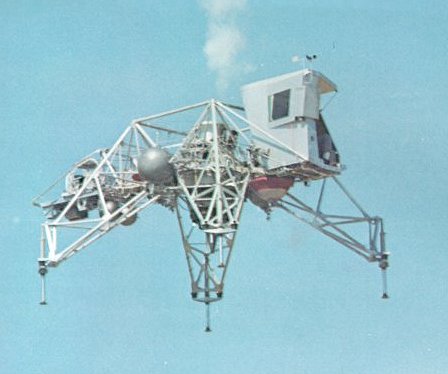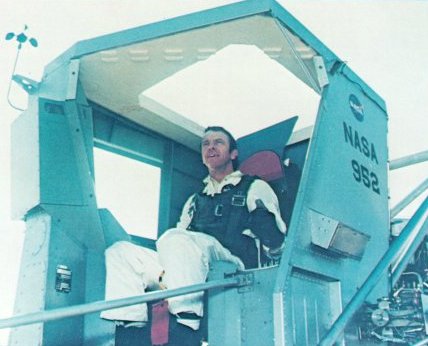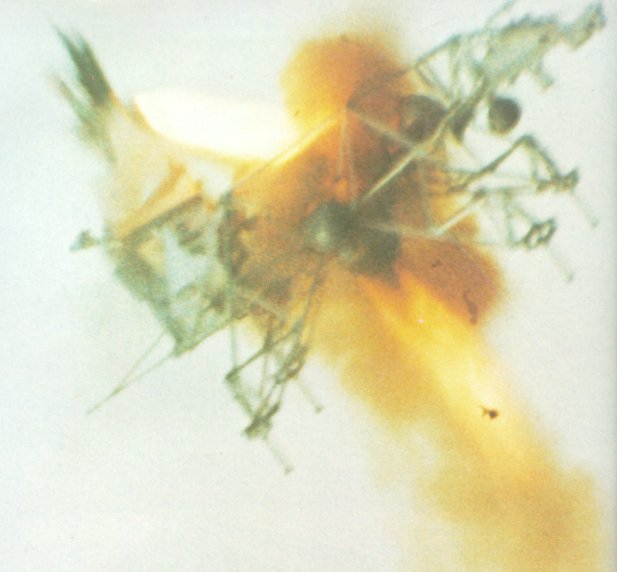
ADVANTAGES OF BEING THE ELDEST SON
Let us proceed to the anomalies, space jargon for the surprises. Who would have imagined that seven of these superboys-next-door would turn out to be left-handed (over twice what the percentages would predict), particularly since it is more convenient for test pilots to be right-handed? Was it another symptom of the determination to beat the odds? Similarly, nine of the twenty-nine didn't make it the first time they applied for admission (two of them had to apply three times). Was it the "I'll show 'em" obsession that prompted them to try again - and win?Then there is the eldest-son syndrome. As long ago as 1874 a psychologist noted that the first child in a family tended to excel. He got a headstart: his doting parents taught him to read early, to study hard, to take on responsibility for himself. A survey of the twenty-nine confirms this thesis to an astonishing degree. Twenty-two were first-born (six of them in the only-child category). Five others had older sisters but were eldest sons. Only two, Stuart Roosa and Mike Collins, had older brothers, and in the case of Collins there is a qualification: he hardly knew his brother, who was thirteen years older, and Major General and Mrs. Collins gave Mike the only-son treatment the second time around.
To be dubbed astronaut, by way of the thrilling telephone call from Deke Slayton or, in some cases, his deputy Al Shepard, was to achieve knighthood. This occasion the chosen one never forgot, like the day he got married or the day JFK was shot.

|
| The Flying Bedstead, officially the Lunar Landing Training Vehicle, made everyone a bit tense. (The picture below shows Al Shepard beginning a run.) Its jet engine and thrusters gave an excellent feel for landing the LM, but it was cranky, unforgiving, and uncontrollable if allowed to tilt toomuch. |

|
Soon he learned that this was only the beginning. An astronaut didn't join the peerage until he got assigned to a flight, initially to a back-up crew and then later prime. "I would have flown alone, or with a kangaroo - I just wanted to fly", Mike Collins wrote.
Men assigned to a crew not only were in the public eye. They and their families achieved status with their peers; they went to the head of the line when it came to time in the simulators, or in access to the T-38 planes.
The men with missions got invited to the White House; Congress welcomed them. Even as late as Apollo 13, whose crew appeared before the Senate Space Committee, Senator Curtis credited the astronauts with the ability "to increase the attendance of this committee more than anything I know of." Senator Symington observed that Lovell & Co. represented "all the best in this country", and Senator Margaret Chase Smith of Maine said that "this is certainly one of the most momentous occasions of my career".

|
| If the bedstead went flooey, it was time to leave. Here research pilot Stuart Present ejects, to parachute to safety. In all, two research pilots and Neil Armstrong had to bail out. But when NASA brass suggested dropping the risky trainer, astronauts who'd already made Moon landings vetoed it, insisting it accurately forecast LM handling. |
Sometimes fate played a hand, as in the case of Buzz Aldrin. Deep in despair over his failure to be assigned to a prime Gemini crew - he was back-up on Gemini 10, and there would be no Gemini 13 - Aldrin was suddenly catapulted to the last mission because his next-door neighbor Charles Bassett was killed in a plane crash. From his superb walk in space on his Gemini mission Aldrin went on to back up Apollo 8, succeeded to prime on Apollo 11, and assured himself a front seat in the history books.
Spaceflight was the sine qua non, but ironically the man who sat atop this bastion of power was an unflown astronaut. Donald K. Slayton, a dairy farmer's son from Sparta, Wis., got his wings at age 19 and flew 56 B-25 missions in the Mediterranean theater before he was 21, followed by seven missions in the Pacific. After World War II he went to the University of Minnesota (aeronautical engineering) and became an Air Force test pilot.
A blue-eyed, steel-nerved flier, he was a natural for the second orbital Mercury mission, after John Glenn's. But doctors discovered he had a slightly irregular heartbeat, which raised an issue that assumed vast proportions - his six colleagues even appealed to President Kennedy to overrule the faction of doctors who wanted to ground Deke. Kennedy assigned this hot potato to his Vice President, who invited the astronauts, along with Robert Gilruth, to a weekend at the LBJ Ranch to thrash out this complaint and others. Deke remained grounded but his comrades elected him their leader, thereby conferring on him (with Gilruth's concurrence) immense power that would control the destinies of all astronauts for the next decade.
| Next |